Dune was a revelation. And I say this as someone who has read the books (many times over), seen all of the previous screen adaptations, and played the many videogames and their spinoffs. As a fan, as someone who grew up poring over the pages of Frank Herbert’s novels, there should be absolutely no surprises left in this movie. And yet, the way Denis Villeneuve has brought his book to life, with just the right amount of fidelity and an overabundance of grace, had me staggering and speechless out of the cinema.
Watching it, I kept thinking to myself, “This is Dune.” This. Is. Dune. It is everything I pictured in my mind and more. The imagery. The scale. The ornithopters. All of it was familiar and yet completely new. This is worldbuilding that feels like an invitation to immerse yourself and get lost in the vast and sweeping deserts of Arrakis. This is filmmaking that is both intimate and expansive, that takes as much pleasure in the quiet interactions between its characters and political machinations of its plot as it does in its breathless and beautifully choreographed action set pieces.
Timothée Chalamet is pitch perfect as Paul, carefully treading that fine line between childlike innocence and entitled doggedness. Rebecca Ferguson understands how Jessica, the most powerful person in every room she’s in, is forced to constantly hold herself back. And Oscar Isaac is everything the Duke should be: a noble leader, a concerned father, a man who is knowingly marching towards his doom.
And yet, this isn’t a movie that genuflects towards fandom. Villeneuve embraces the myth of Dune and lays out all of its mysteries in a clear and accessible way. He rejects exposition for action, he forgoes the usual sci-fi signposts, and crafts a movie that is light on space and heavy on opera.
In fact, the only thing you need to know going into this is that it is the first of two movies. Everything else is right there on the screen.
Arrakis – Dune – Desert Planet
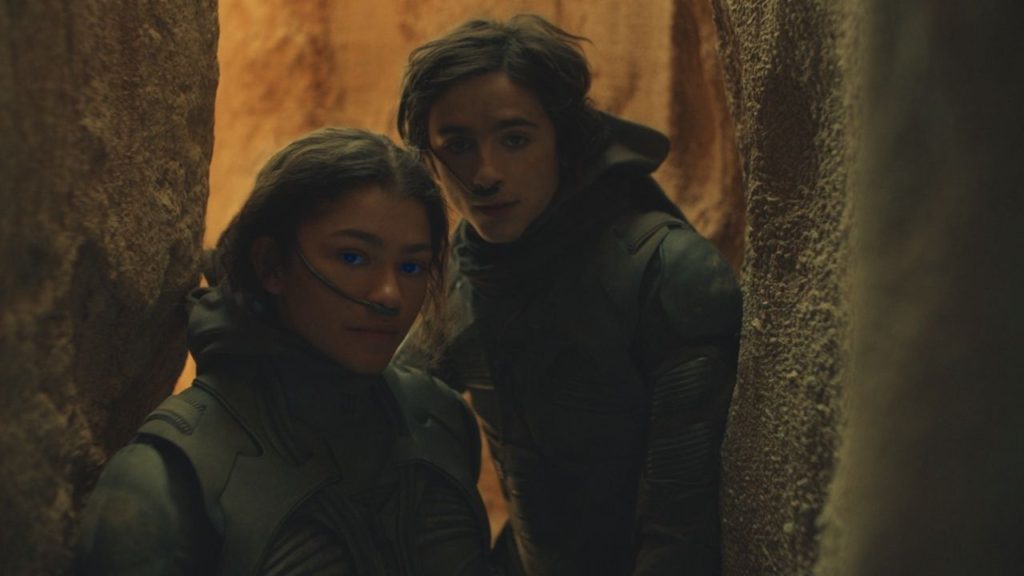
Dune takes place more that twenty thousand years in the future. Set in a feudal society where noble families rule planets in an imperium that’s presided over by a Byzantine emperor, the book begins when Duke Leto Atreides is forced to move his family from their home on the idyllic planet of Caladan to the desert planet Arrakis. The titular Dune.
What follows is nothing short of epic. Political intrigue. Conspiracy. Betrayal. Religious fanaticism. All in service of a story about environmental brinkmanship and messianic salvation.
If Dune looks and sounds familiar, it’s because it should be. It owes its existence to the pulp fictions of Edgar Rice Burroughs, it was written as a response to Isaac Asimov’s Foundation, and it has inspired almost everything that has come after, from Blade Runner to Stargate, from Mad Max, to 2001: A Space Odyssey, to Nausicaä of the Valley of the Wind. The most blatant Dune ripoff is of course Star Wars, with its desert planet, evil emperor, and boy with strange mental powers and a galactic destiny. The story goes, that way back when, Herbert and some of his colleagues had even formed a joke organization called the “We’re Too Big to Sue George Lucas Society.”
From Page to Screen
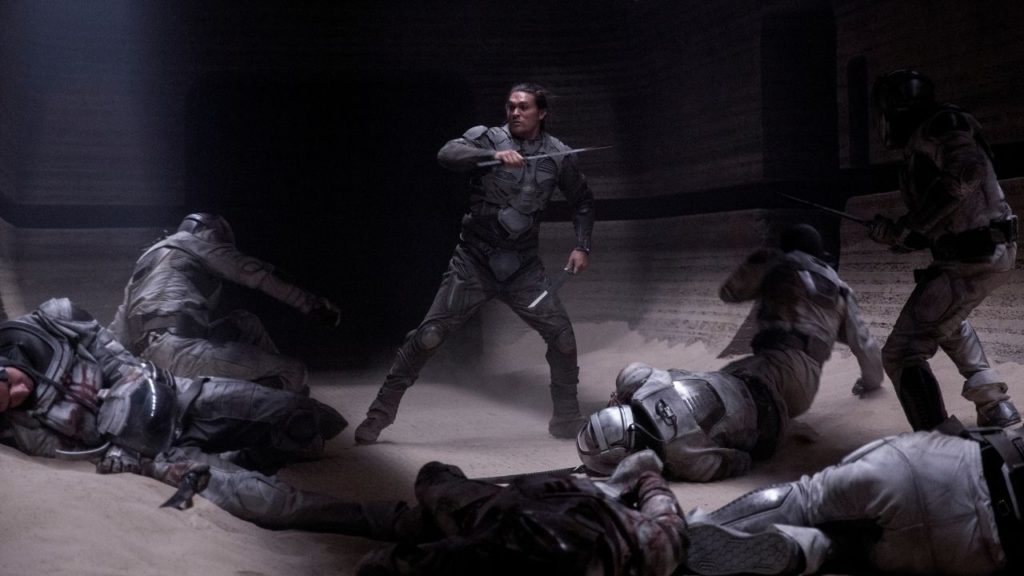
When we speak about literary adaptations, we often do so in terms of a director’s vision. We interpret the work in reference to their authorial intent. Peter Jackson’s preoccupations are all over The Lord of the Rings. Tomas Alfredson’s moody, broody aesthetic brought an impeccable look and feel to Tinker, Tailor, Soldier, Spy. And the way David Fincher frames Gone Girl with his noir stylings elevates Gillian Flynn’s potboiler into something altogether more artistic.
Dune felt different. Dune felt like a collaboration. This movie was Denis Villeneuve and Frank Herbert working together to visualize the text as opposed to translating it for the screen. It was like they were of one mind in bringing all of the epic insanity of the novel to life.
Herbert’s writing always had a cinematic flair. He didn’t skip past climactic action sequences like Tolkien. And unlike Asimov, he was as interested in the madness as he was the message. Yes, this was a book that concerned itself with a great number of human issues – the environment, the limits of human potential, imperialism – but it was also an out and out action adventure, complete with political intrigue, mind-bending sci-fi concepts, and giant monsters that lurk underground. It has always been perfect fodder for cinema. And just the right kind of material for a director like Denis Villeneuve.
Denis Villeneuve is a Hollywood rarity. His movies, Sicario, Arrival, Blade Runner 2049, and now Dune, are a cunning balance of arthouse sensibilities and blockbuster scale, brought to life in a world where the multiplex movie is so often associated with being mindless, hyperactive, and cut for the attention span of a teenager. Villeneuve has never believed that to be true. His fictions have always been steeped in significance. Just as his explosions have always had meaning and motivation.
His Dune, and it is his Dune, is in some ways a gentle rebuke to blockbuster cinema. Proof that you can slow things down just a little, build character through action and circumstance, and still have faith that the audience will stay with you. The formula is still there, but it is given room to breathe, and that makes all of the difference.
Whither Part 2?
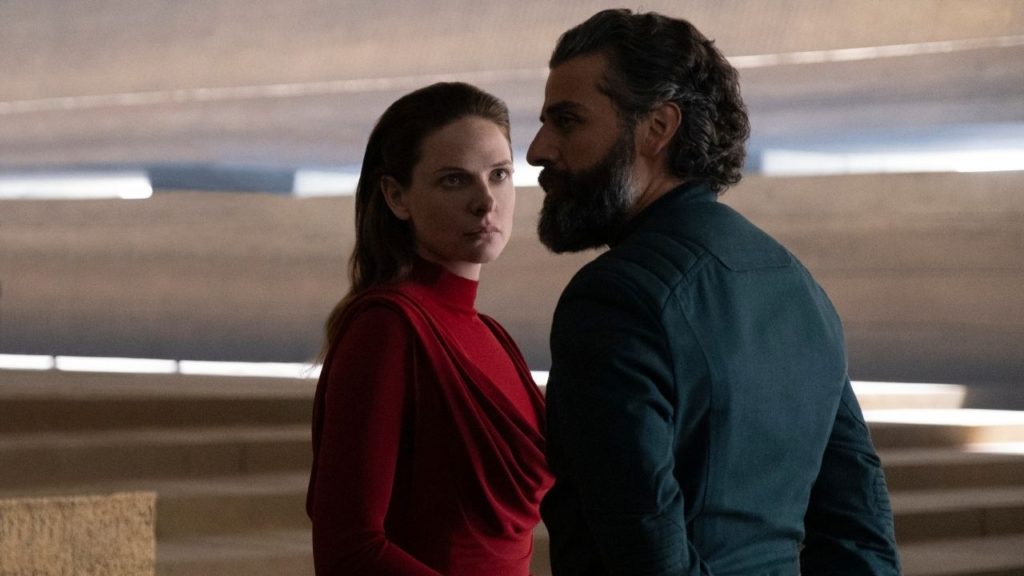
Dune, however, feels like a no win for Villeneuve. And by extension, for us. Despite crafting what might be the most perfect adaptation of Dune we’ll ever see, the state of the world (read: the pandemic) and the bullshit mathematics of Hollywood (read: those damned box-office numbers), mean that success and failure become completely arbitrary constructs.
About halfway through the movie, while surveying the spoils of his new stewardship and realizing just how malignant the forces against him really are, the Duke Leto Atreides says to his men: “I’ve been set up to fail.” It is a sentiment that mirrors Villeneuve’s own journey with this film. Taking on Dune is, in itself, a Sisyphean ordeal. It’s not that the novel is unadaptable, it’s just that it requires the kind of space, and time, and money that doesn’t always guarantee returns. Couple that with Warner Bros.’ decision to release the movie in both theaters and on HBO Max simultaneously, and it feels like no amount of critical acclaim will guarantee that Part 2 will happen.
I want Part 2. I need Part 2. But even if it never gets made, I remain grateful that this version exists. That, against all odds, Denis Villeneuve was somehow given the space, the time, and the money to finally make Dune happen.


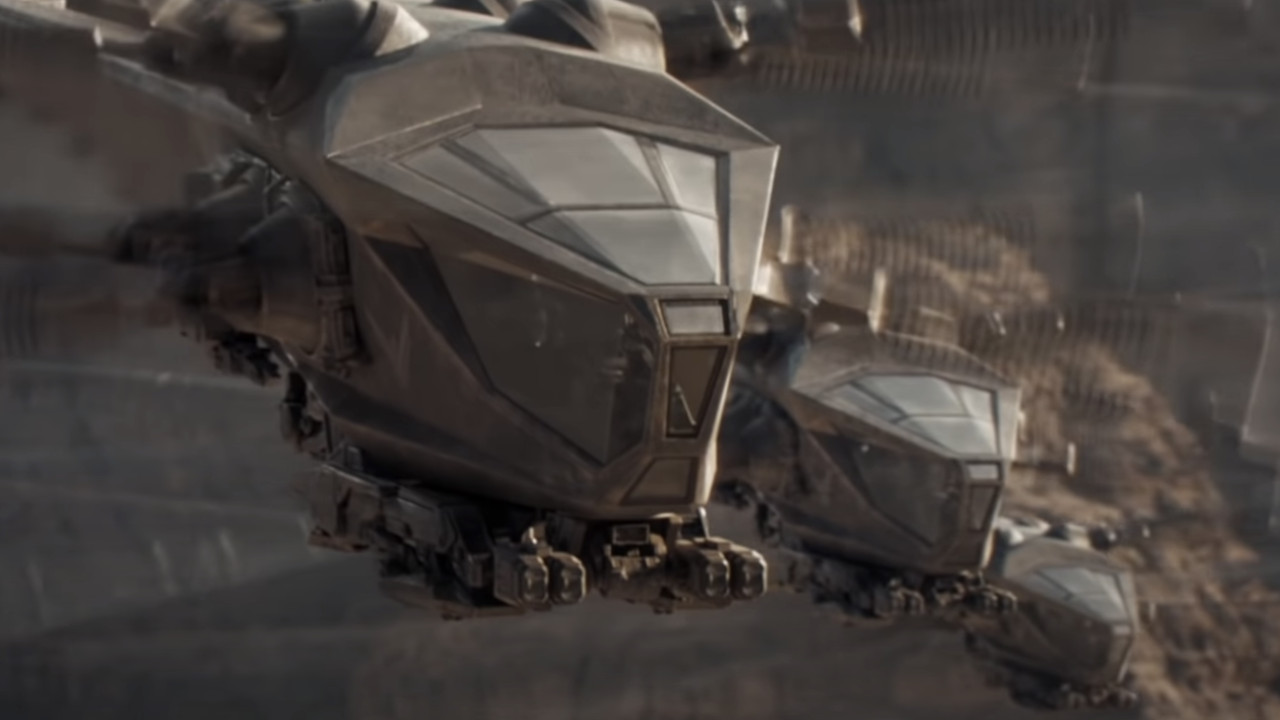

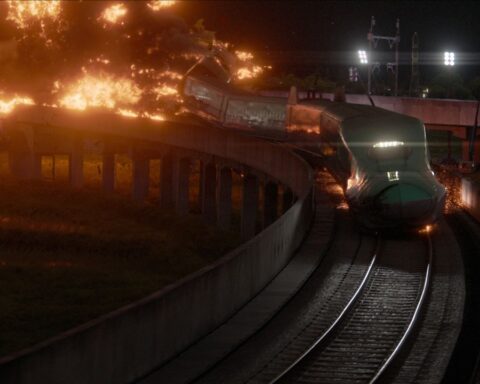
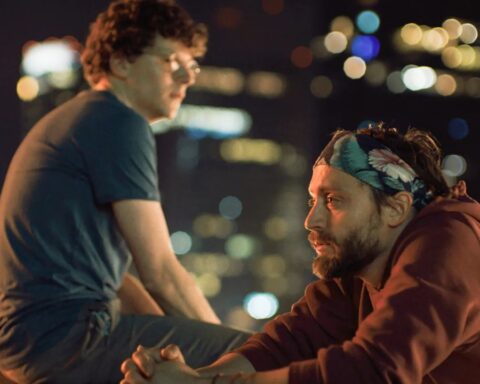
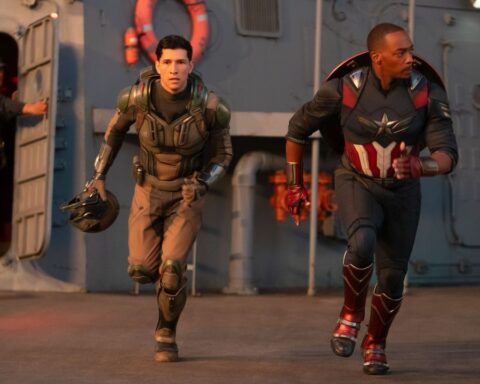


Follow Us